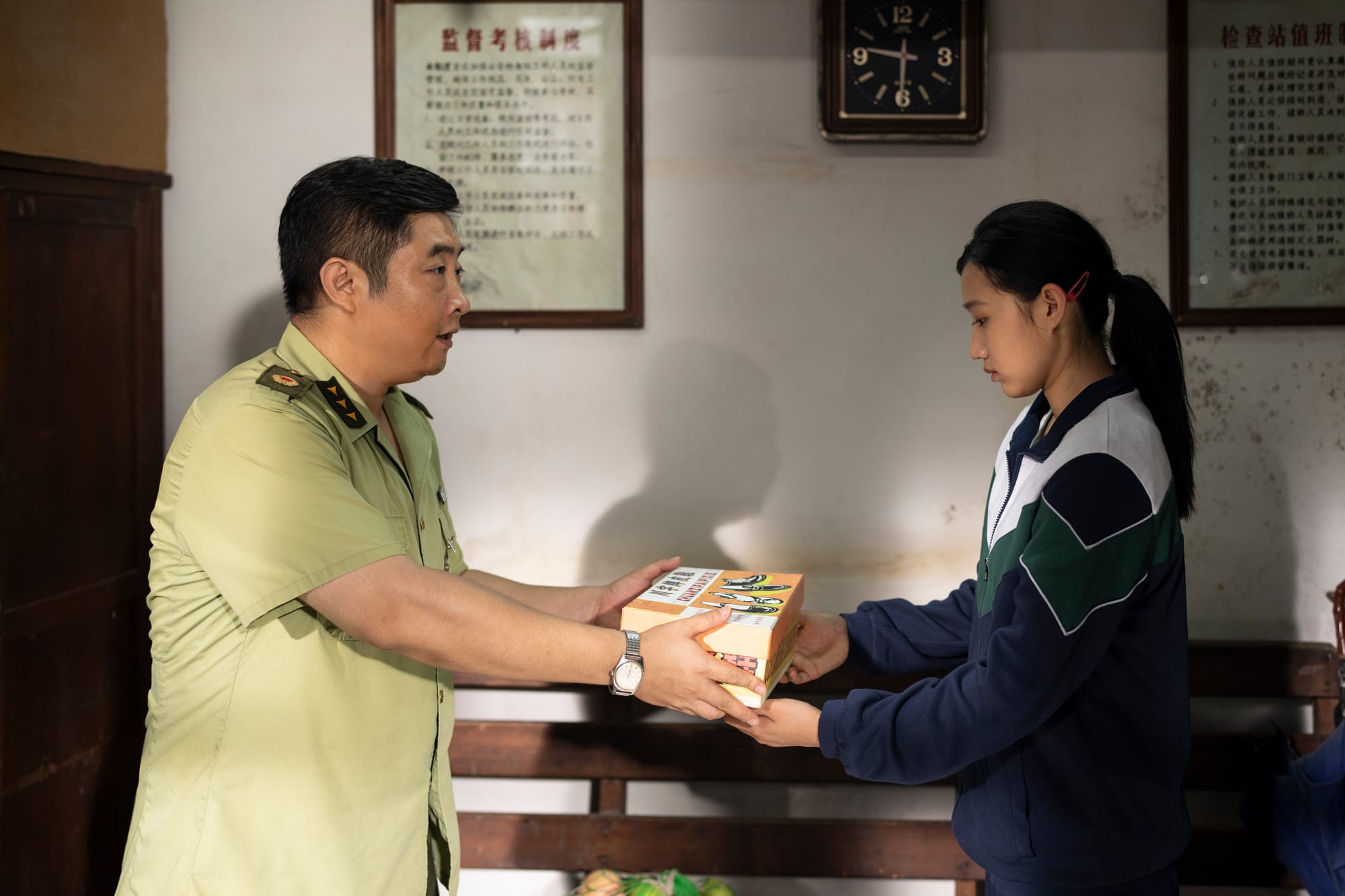NYAFF 2025 Part Two
Reviews of Muromachi Outsiders (aka Samurai Fury), Deep in the Mountains, The Informant, and The Stone.
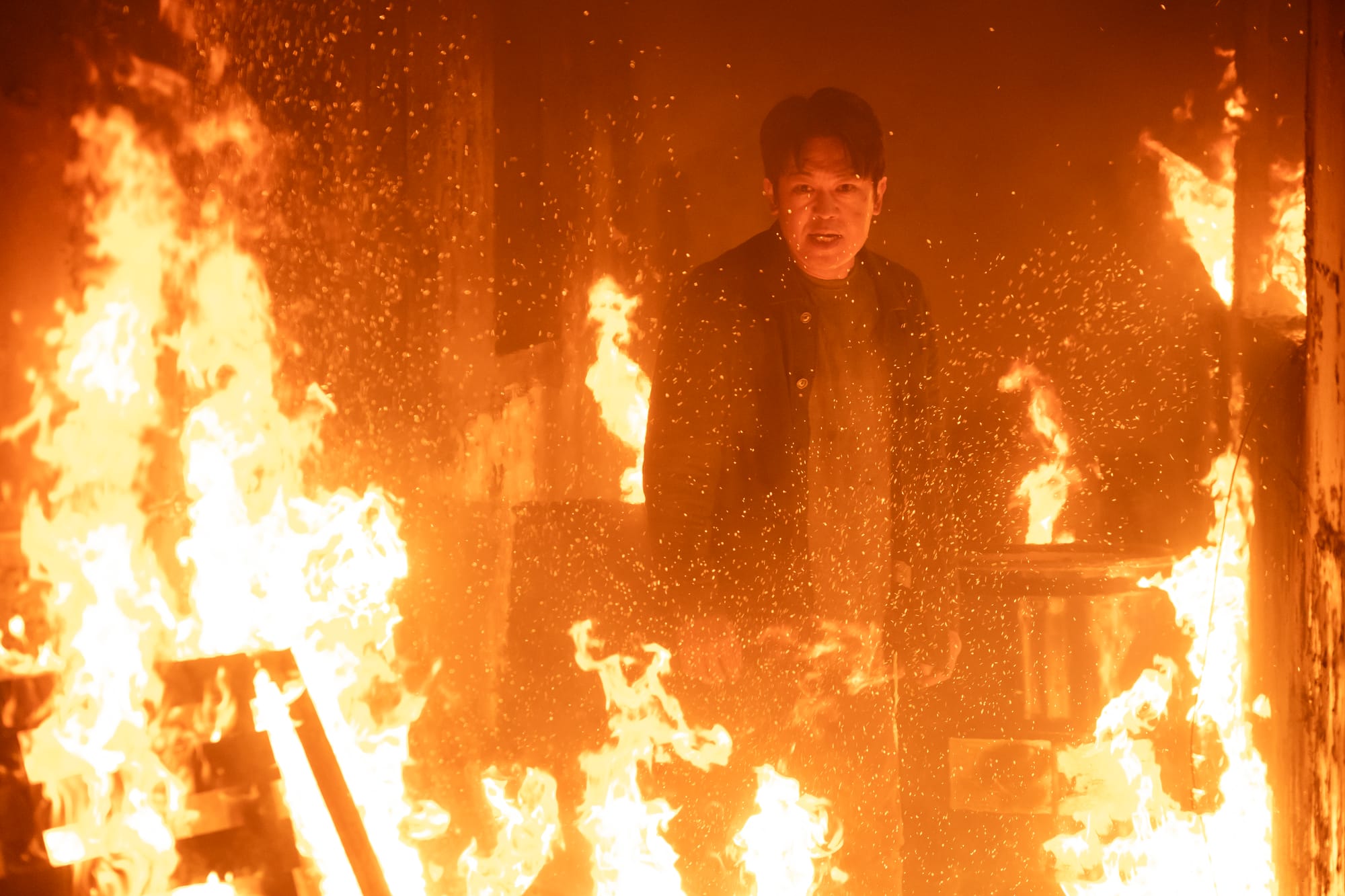
This is the second part of my coverage of the 2025 New York Asian Film Festival. In addition to the films covered in Part One, I’ve reviewed three other movies that played this year’s festival: The Last Dance, Daughter’s Daughter, and The Old Woman with the Knife. While the first dispatch covered four Chinese language films, this one will give a sampling of movies from around East Asia, one of the great strengths of the NYAFF being its wide scope of offerings, with films from Malaysia, Bhutan, Indonesia, and Mongolia represented this year in addition to the more dominant industries from Japan, Korea, and the primarily Chinese-language territories. Being less adventurous than the festival itself, however, this dispatch covers movies from Japan, Korea, China, and Thailand.
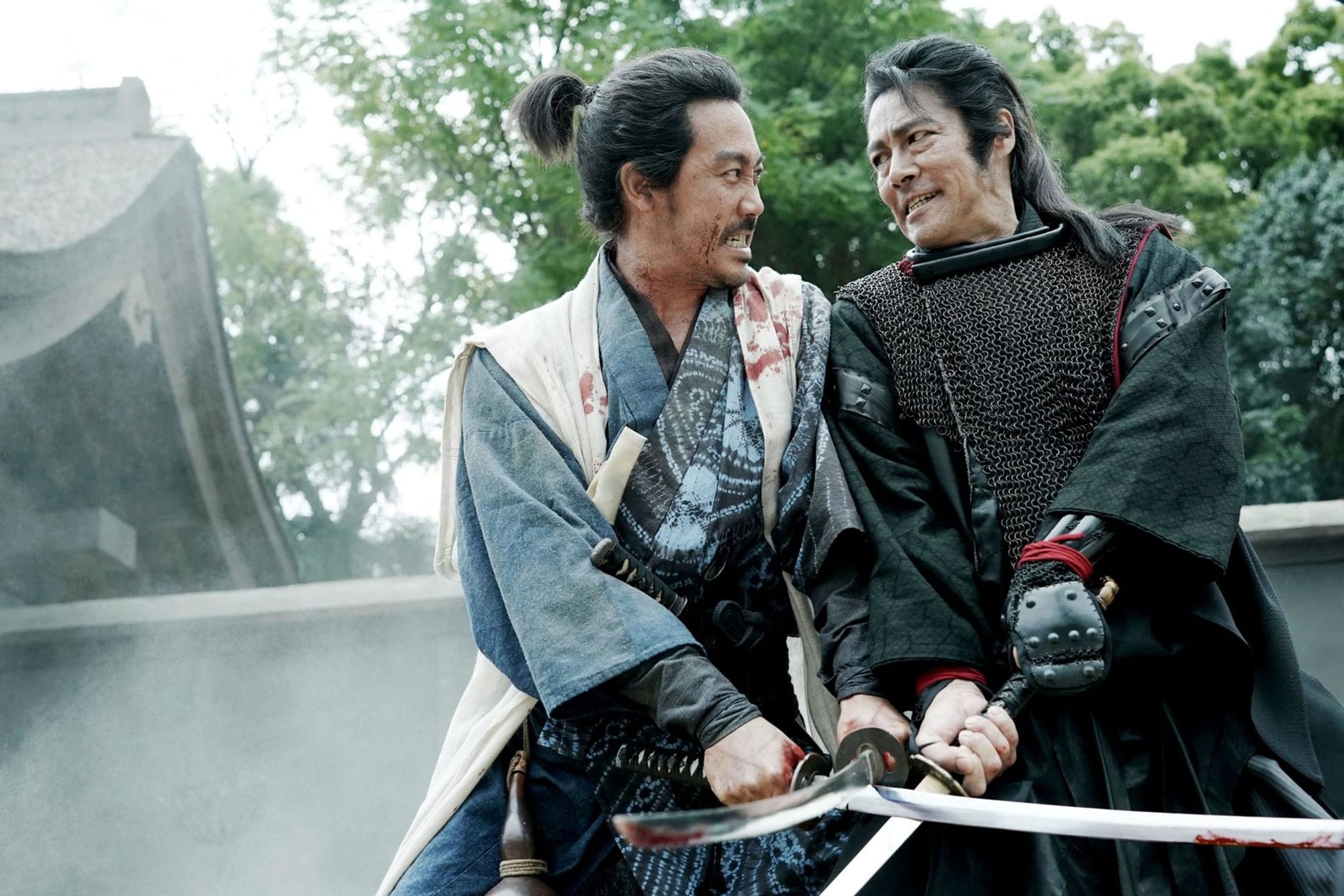
The best of them is also the one most likely to get a stateside release, in fact it’s already earned itself a generic English-language title. Muromachi Outsiders (aka Samurai Fury) is another modern re-configuring of the classic jidai-geki, something of a piece with the recent 11 Rebels or Kubi. Based on real events, Oizumi Yo plays a wandering ronin with a heart of gold named Hasuda Hyoe, who makes it his mission to help out the unfortunate peasants suffering under a corrupt and cruel system of excessive taxation and usurious money-lending by the ruling samurai elite and their compatriots in the monastic establishment. The government raises taxes past the point the farmers can pay, so they borrow money at exorbitant interest rates from the monks, who then seize their property when they can’t pay their IOUs. If the people resist any of this, they get summarily murdered by the priests, the samurai, or both. Oh, and also there’s a plague going around, which makes it impossible for any workers to ever actually pay off their debts.
Intervening in a fight between debt collectors and villagers, Hasuda rescues a young peasant who has a demonstrated knack for fighting with a staff. Taking him as an apprentice, the two walk the earth for awhile before Hasuda deposits the young man with an irascible martial arts master. Over a number of years, the boy performs a variety of kung fu movie tasks and masters his skills. Then he rejoins Hasuda, who in the intervening years has gathered an informal network of fighters and villagers eager to overthrow the system. The second half of the film chronicles their attack on the capital of Kyoto.
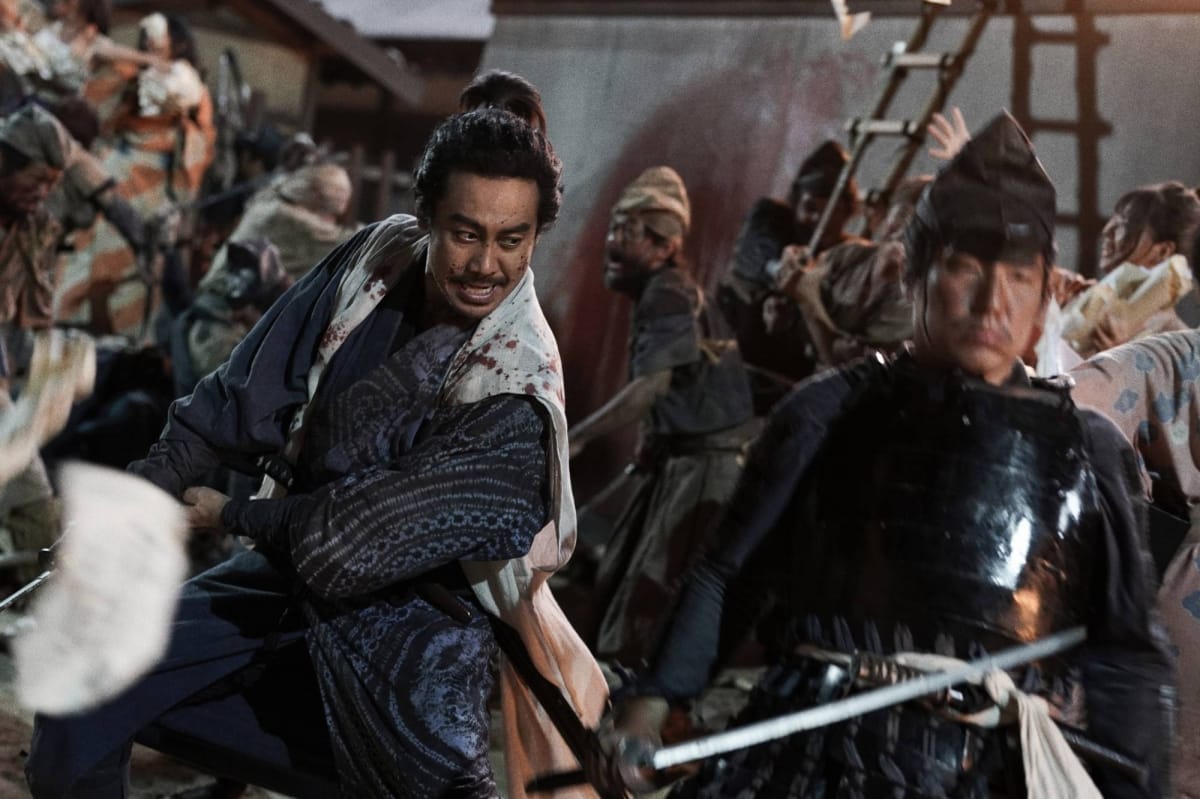
Structurally, the movie is a bit odd. The first half is essentially world-building, fleshing out the system as it is and introducing the variety of characters that will take part in the final battle. Not just the heroes, but also Hasuda’s main rival, an old friend who finds himself on the opposite side of the law, as the head of the shogun’s security apparatus (kind of like if Robin Hood and the Sheriff of Nottingham were old buddies and both had a romantic history with Maid Marian). The training sequence is enjoyable, but essentially generic and its story of individual learning and pedagogy doesn’t really fit in with the film’s focus on collective action. It mostly feels like it’s there to pad out the run time and give us some fight scenes before we get to the final battle. But the tasks are pretty fun (and incredibly dangerous looking—or would be if they were real instead of computerized) so the sidetrack is mostly harmless.
The final battle though is excellent, reminiscent of the final section of Jimmy Wang Yu’s Beach of the War Gods, in its balance between individual fights and the complex geography of large-scale urban fighting. All the supporting characters we’ve met get a chance to shine, and there’s a real sense of tension and relief as the peasants tromp their way through their masters' archives, burning the evidence of their unpayable debts as they go. It’s a very satisfying conclusion, if a little distended by multiple endings. Oizumi makes it all work though, with an affable charm belying righteous anger and steely determination. He’s the kind of guy you’d want to follow into a doomed uprising. Director Irie Yu has one of the Kawai Yuumi films making the festival rounds this year, A Girl Named Ann (it played at Japan Cuts), the one of hers I haven’t seen. It doesn’t sound anything at all like this movie.
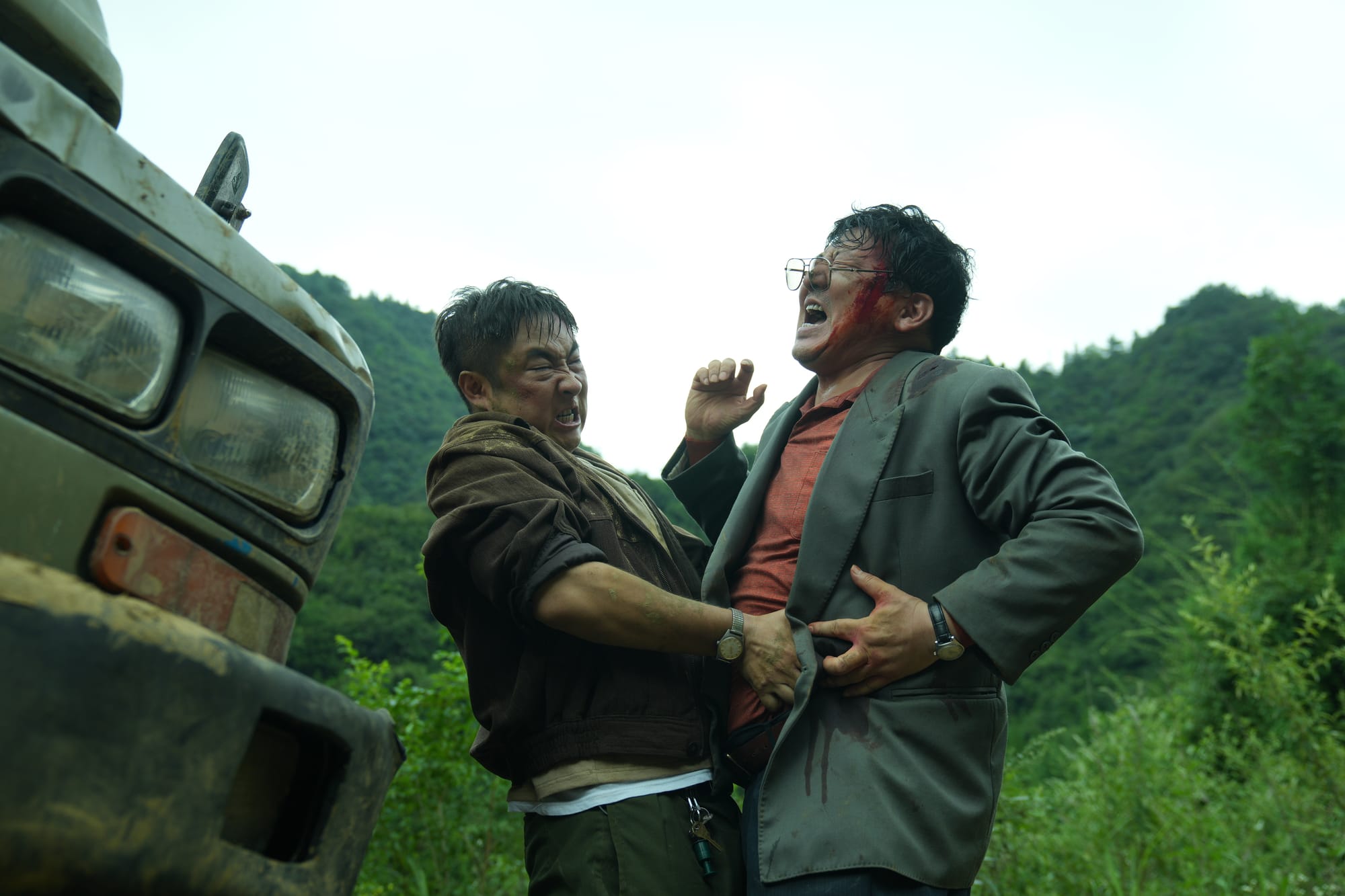
Deep in the Mountains isn’t really anything like Muromachi Outsiders either, hiding its broad social critique behind the multiple layers of distancing required by the PRC censorship machine. First and foremost, the film wants you to know that it is about events that took place almost 30 years ago, and that all the people involved who should have been punished were, in fact punished. Deep in the Mountains is ostensibly a movie about a serial killer: a young woman, on the run from an abusive husband, gets picked up by a trucker, and the two of them fall into the web of a madman. Sometime later, another trucker and his daughter wander into the same village, where the woman and the killer are posing as restaurant owners: he kills truckers and sells off their merchandise, she is forced to go along for fear of her own life. But what the film is really about is what happens when a local cop tries to rescue the trucker and apprehend the killer: total and complete institutional failure.
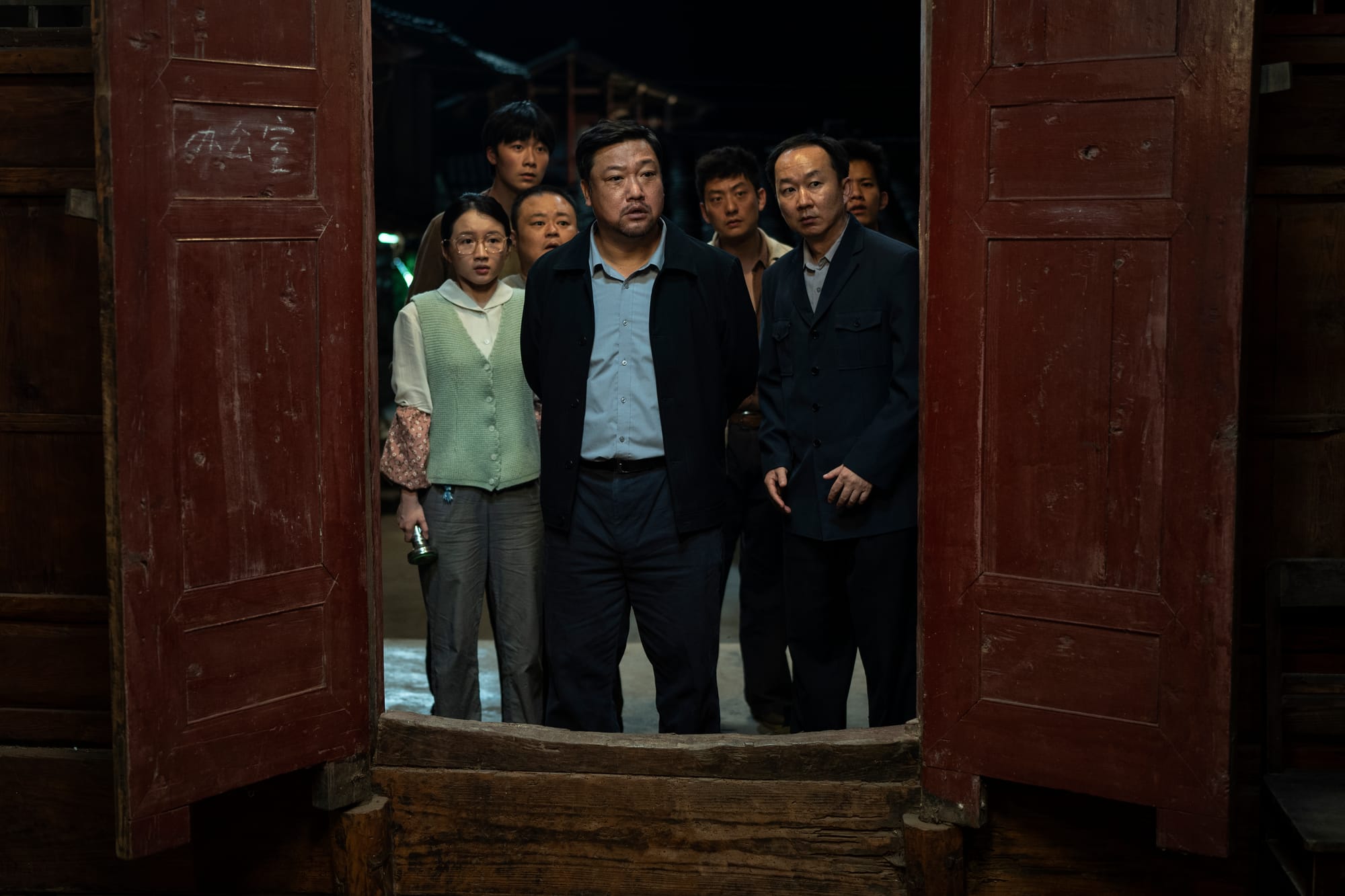
The cop is our hero, marooned at a checkpoint after a case gone wrong, he’s a real detective who has been reduced by the bureaucracy into checking headlights on passing rigs. When the trucker and his daughter suffer a breakdown and have to pull off onto a side road, the driver goes into the nearby town for help, while the daughter stands guard. When night falls and dad hasn’t returned, the girl returns to the cop and begs for his help. He goes to the village to snoop around, but it being after hours and life in the mountains being typically sleepy, and with no reason to suspect foul play, he doesn’t wear his uniform and he forgets to bring his badge. Being a good cop, he realizes right away that the killer and the woman are hiding something, and the killer attacks him. The two fight for awhile until some locals show up: the town accountant’s daughter and her older brothers. But both men claim to be police, and no one knows who to believe. The confusion is compounded when the local guy in charge of village security arrives and spends as much time jockeying for social position with the “little accountant” as he does trying to discover the truth, and the village headman arrives and plays both the security and accountant factions against each other, in the interest of furthering his own power (especially with some mucky-mucks due in the morning to give him a plus rating for his village management skills).
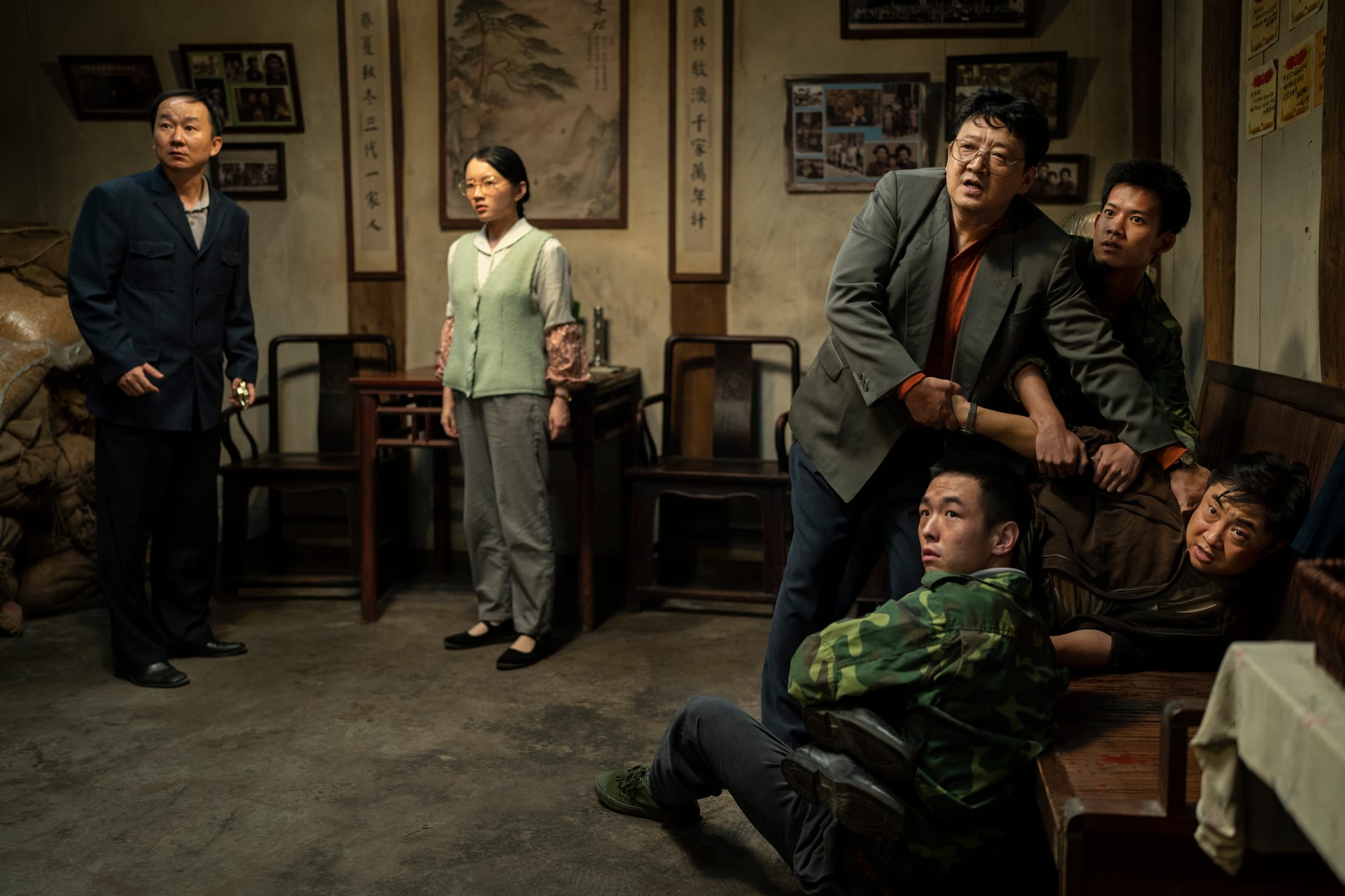
Thus a tangled network of bureaucracy and competing interests is weaved, none of whom are actually interested in solving the brutal crimes happening right in plain sight. Both Qiao Shan as the cop and Wang Yanhui as the killer are terrific, the one bursting with exasperated competence and the other hiding behind layers upon layers of lies, clearly delighting in poking the cop with how easy it is for him to mislead the venal villagers. But underlying all the satirical games is the very real violence inflicted by the killer, made palpable by his unwilling accomplice and her deep traumatization at having to go along with his schemes. For all the fun of the film’s critique of local politics and the misplaced incentives that govern it, her horror at witnessing so much killing grounds the film in a kind of unbearable tension: these rules that we build our world around that seem so silly have very real consequences. It’s a strong debut feature from Li Yongyi, who has edited the best of Zhang Yimou’s recent work (Snipers, Cliff Walkers, Full River Red) and a worthy companion to that other great satire about Mainland corruption with the word “Mountain” in the title, Xin Yukun’s 2014 Coffin in the Mountain.
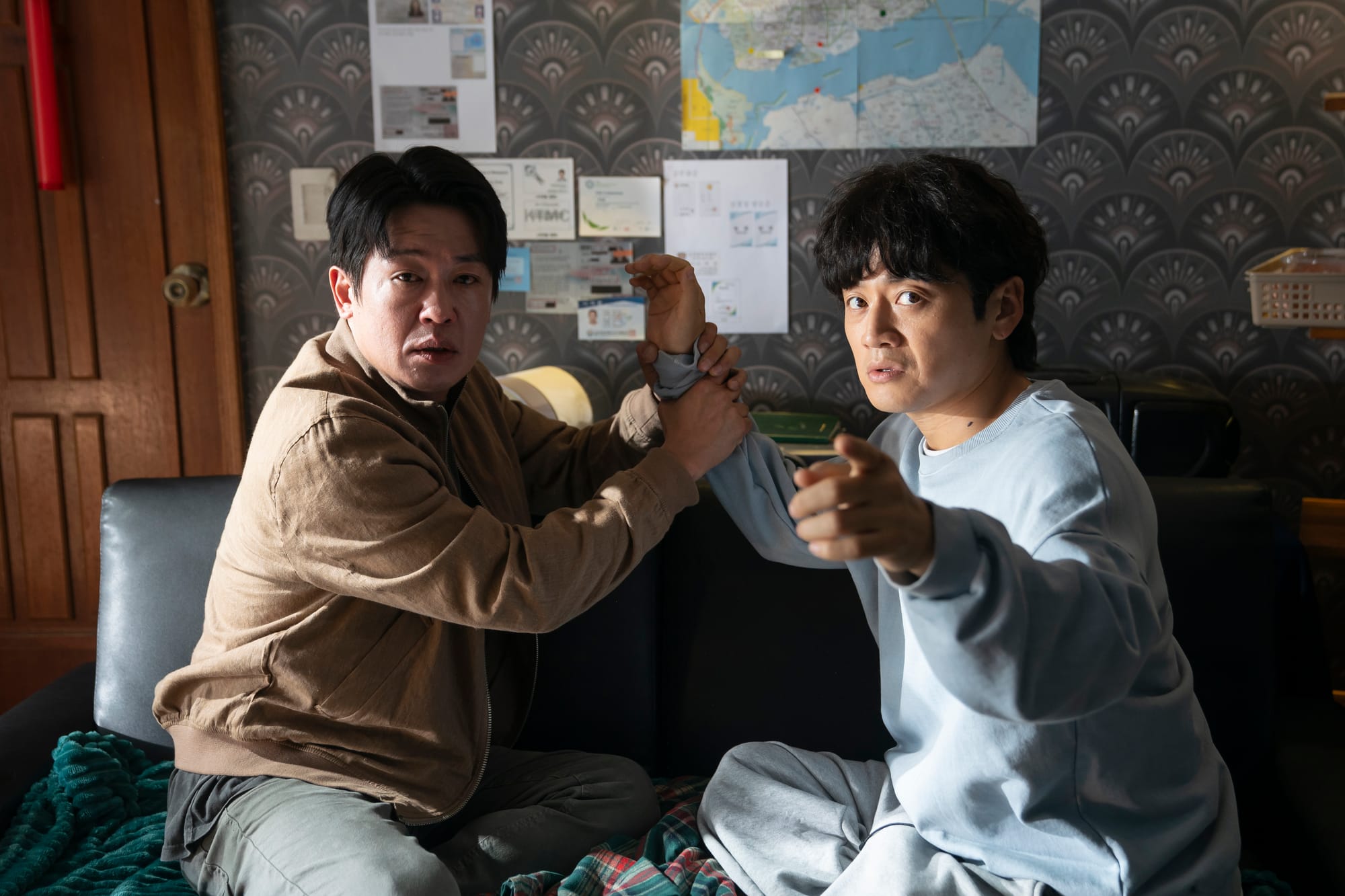
That balance between satire and heart is a difficult one to find, and neither The Informant or The Stone quite manage it. The Informant is a twisty cop-gangster movie about an amoral world where a bumbling cop and his CI navigate a couple of gangs of crooks and some corrupt police. It’s tilted more toward slapstick comedy than satire, but its jokes only occasionally land and, in the end, its madcap world is more exhausting than it is funny. But it’s got some good actors chewing up the screen and some fun action set pieces to keep things moving. Jo Bok-rae has some good energy as the informant who spends as much time stealing from the cops as he does ratting out the crooks, and Heo Sung-tae has some good bits where his pathetic cop actually turns out to be a world-class fighter. The rest of the cast is less interesting, and the side plot where Heo is romantically obsessed with a fellow cop (played by Seo Min-joo, who does a fine job with not much of a role) seems misjudged at best.
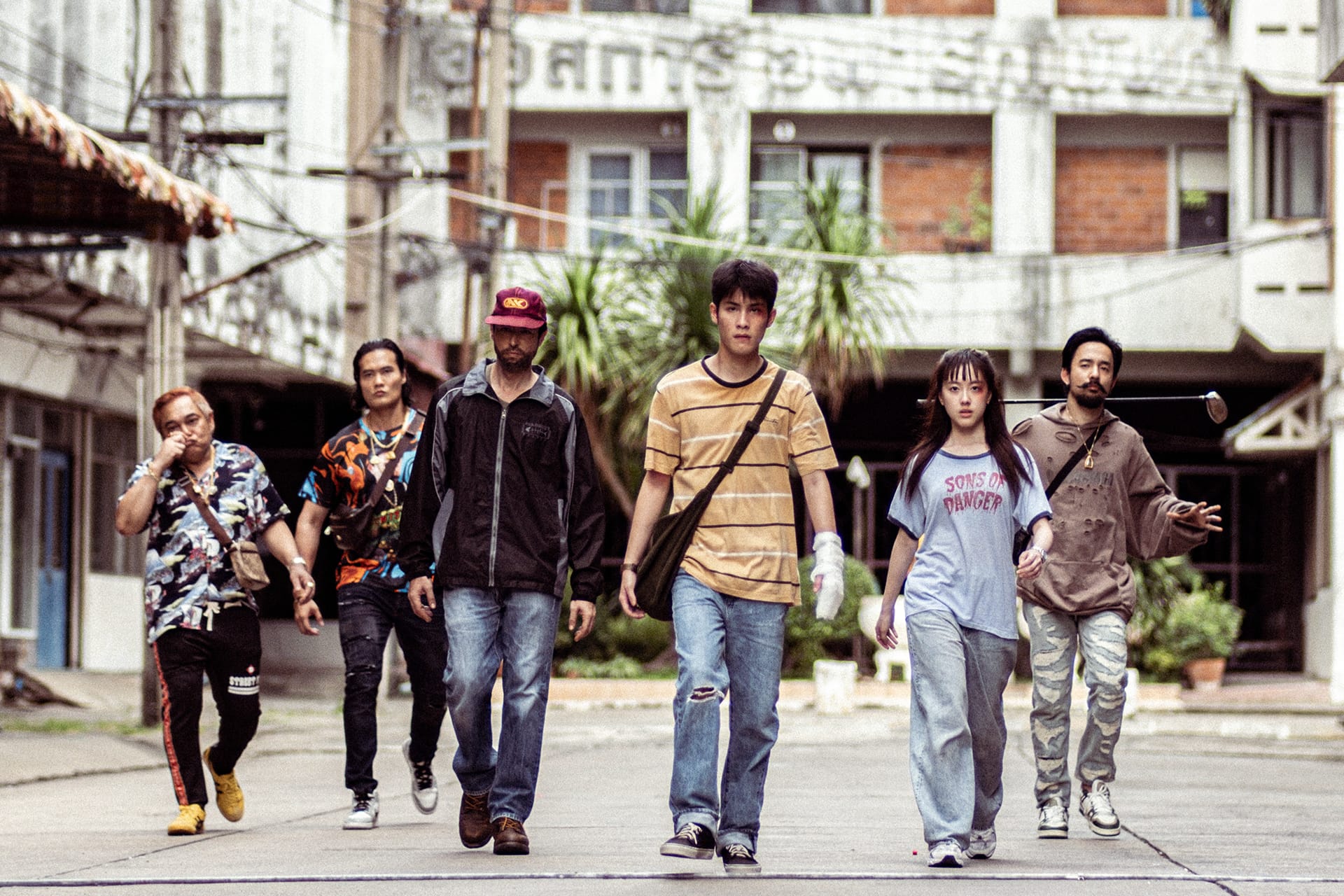
Still, it’s more successful than The Stone, which similarly builds a complex world of betrayals and laughs, but the tonal balance is even more off-key. Taking place in the world of amulet trading, a collectibles market where experts and forgers compete to make money exchanging small religious tokens, stamps made by Buddhist monks that are said to confer magical powers. One such token is stolen from a gangster in the film’s prologue, and ends up in the hands of a clueless young man who attempts to sell it to raise money for his hospitalized father. Not knowing anything about the market, he does some cursory internet research and falls in with a pair of competing brokers: one a slick guy with a popular streaming channel, and the other a cute girl who pays attention to him. Of course he sides with the girl.

In a film full of twisting allegiances, only one of the turns is truly impactful, and that’s when it shifts from a kind of slice-of-life rom-com into its true form: a movie about a world where everyone is terrible. It’s not exactly a shock when it happens (well, it is to the main character, but not to us) but it’s effective nonetheless. Directors Arak Amornsupasiri and Vuthipong Sukhanindr push beyond the simple plot mechanics though into some shockingly brutal violence, made only more upsetting by the light comedy tone of the preceding thirty minutes. As the film unwinds, things grow ever worse for our hero, as more and more interested parties with more and more willingness to exploit each other both verbally (by running scams) and physically (by torturing and outright murdering people) are introduced. It all ends the only way a world like this can: with slow-motion carnage.
But not before a whole lot of melodramatic speechifying. The hero’s desperate pleas on behalf of his sick father never really work, and his internalized moping throughout the movie may work as a portrait of a shy young man buffeted by forces he can’t understand, but it doesn’t make for a very interesting main character. Korranid Laosubinprasoet fares much better as the girl, all charm and cuteness when seducing the boy, and bringing a welcome air of caper film energy once she’s unmasked. But even she is bogged down in the end by tearful speeches, which go on way too long before they payoff with the inevitable turn to violence and destruction.
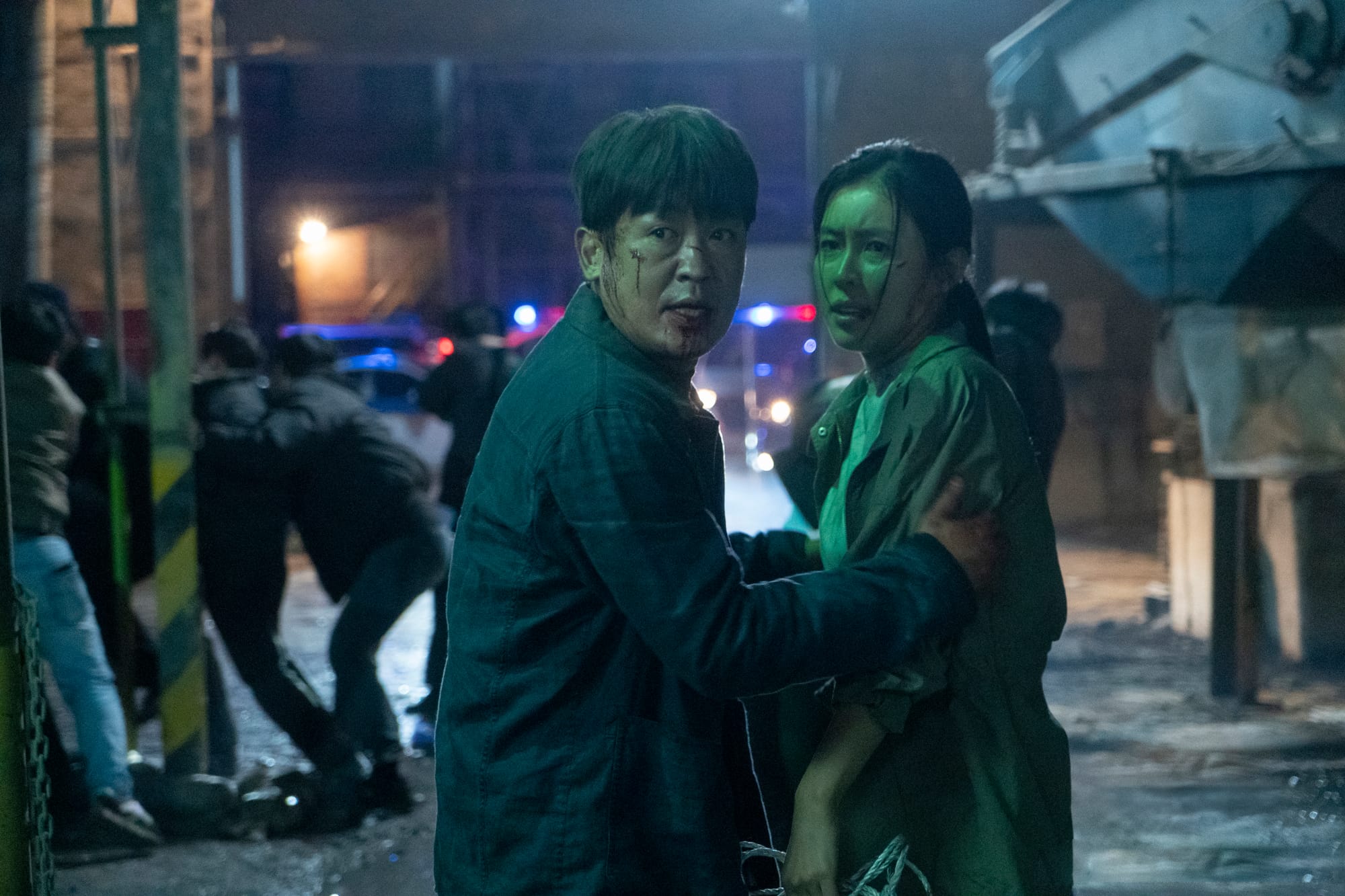
The Informant in contrast is a much smoother experience, but that’s not necessarily to its benefit either. In keeping a consistent tone of slapstick violence and constant betrayal, its world loses all mooring. It’s a place where anything can and will happen, but none of it will actually matter because there’s always another twist around the bend. Even the violence, and some of the fight scenes are certainly inventive and fun, has no weight as Heo and his opponents suffer blows no human could withstand, and then get up and keep fighting, Looney Tunes style. With Muromachi Outsiders and Deep in the Mountains, we feel the weight of every death, of the real human cost of a corrupt world ruled by venality and egoistic individualism, and we’re offered a vision of a better world outside what we see around us: one of solidarity and cross-class friendship and one of quiet competence and mutual responsibility. The Informant and The Stone deny us either the impact of their worlds, or any hope of a better place beyond them. Their diagnoses of the rot in our society are the same (greed, self-centeredness), but they don’t see any way out of the corruption. Their comedy is the most horrifying thing about them.
